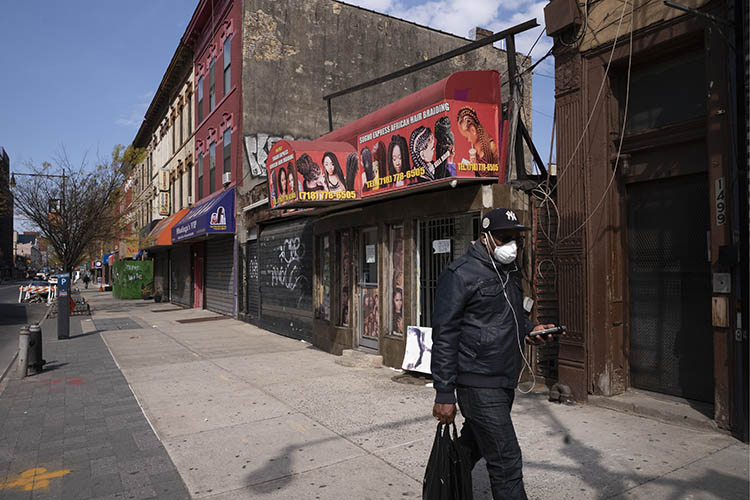Californians see COVID-19 pandemic aggravating inequality, new poll finds

A strong majority of Californians say that the COVID-19 pandemic is increasing inequality in the United States, and a majority believe that black residents are more severely affected, according to poll resultsreleased today by UC Berkeley’s Institute of Governmental Studies (IGS).
In all, nearly 70% of the poll respondents agree that inequality has grown worse since the pandemic emerged in January. But beneath that agreement are substantial divides, with Republicans, rural Californians and those with lower levels of education less likely to believe that inequality is deepening, the pollsters found.
“It was interesting to see that such a large majority agrees that the pandemic is making inequality worse, and that most Californians also see these as racial disparities,” said Tianna Paschel, a Berkeley associate professor of African American studies and sociology who served as data analyst for the new report. “Even so, the poll also shows that there could be significant opposition among some voters to policy solutions aimed at addressing the inequality.”
The Berkeley IGS Poll of 8,800 registered California voters was conducted online, in English and Spanish, between April 16 and April 20, in conjunction with the UC-based California Institute of Health Equity and Action. It is one of the first U.S. efforts to take a deep look at public opinion on the COVID-19 pandemic and its impact.
The poll authors noted growing research-based evidence that black people make up a disproportionate share of COVID-19 infections, and that they are “much more likely to die of the illness.” California and other states have reported that Latinx people also are overrepresented in total COVID-19 cases.
In the survey, they looked not only at overall public opinion, but at how the issues of inequality are seen through different lenses — political party affiliation, and by supporters and opponents of President Donald Trump; geographic residence; educational levels; and race or ethnic identity.
Among the key findings of the new IGS report:
- Nearly 70% of respondents overall somewhat or strongly agreed that the COVID-19 pandemic is increasing U.S. inequality. But that agreement has a clear partisan skew: 82% of Democrats express such agreement, compared to 56% of independents and 40% of Republicans. “Among those who strongly approve of Trump,” the poll found, “only 11% strongly agreed that COVID-19 was increasing inequality … compared to 55% of those who strongly disapproved of Trump.”
- Similarly, nearly 59% overall said the pandemic is adversely affecting black people more than others. Again, a clear split: 68% of Democrats agree somewhat or strongly, compared to 58% of independents and less than 38% of Republicans. Those who disapprove strongly of Trump were much more likely to see COVID-19 as exacerbating inequality, and, in particular, racial inequality.
- A deep split appeared between black and Latinx voters: Among all racial and ethnic groups, black California voters were most likely to agree (70.6%) that black people were the most severely affected, compared to just 45% of Latinx voters. “One possible reason for this may be that Latino respondents may be seeing the unequal impact of the pandemic in economic rather than racial terms,” the authors report. “Another explanation might be that Latinos do perceive racial disparities, but believe that they themselves are impacted more than blacks.”
The IGS report on public opinion regarding race and inequality issues arising from the coronavirus pandemic was the fourth in a series based on the April poll. Other reports have focused on polarization around the pandemic and related government action, elevated health and economic risks among people of color and public opinion on medical and economic protections for farmworkers who stay on the job during the health crisis. The poll has a margin of error of about 3%.
